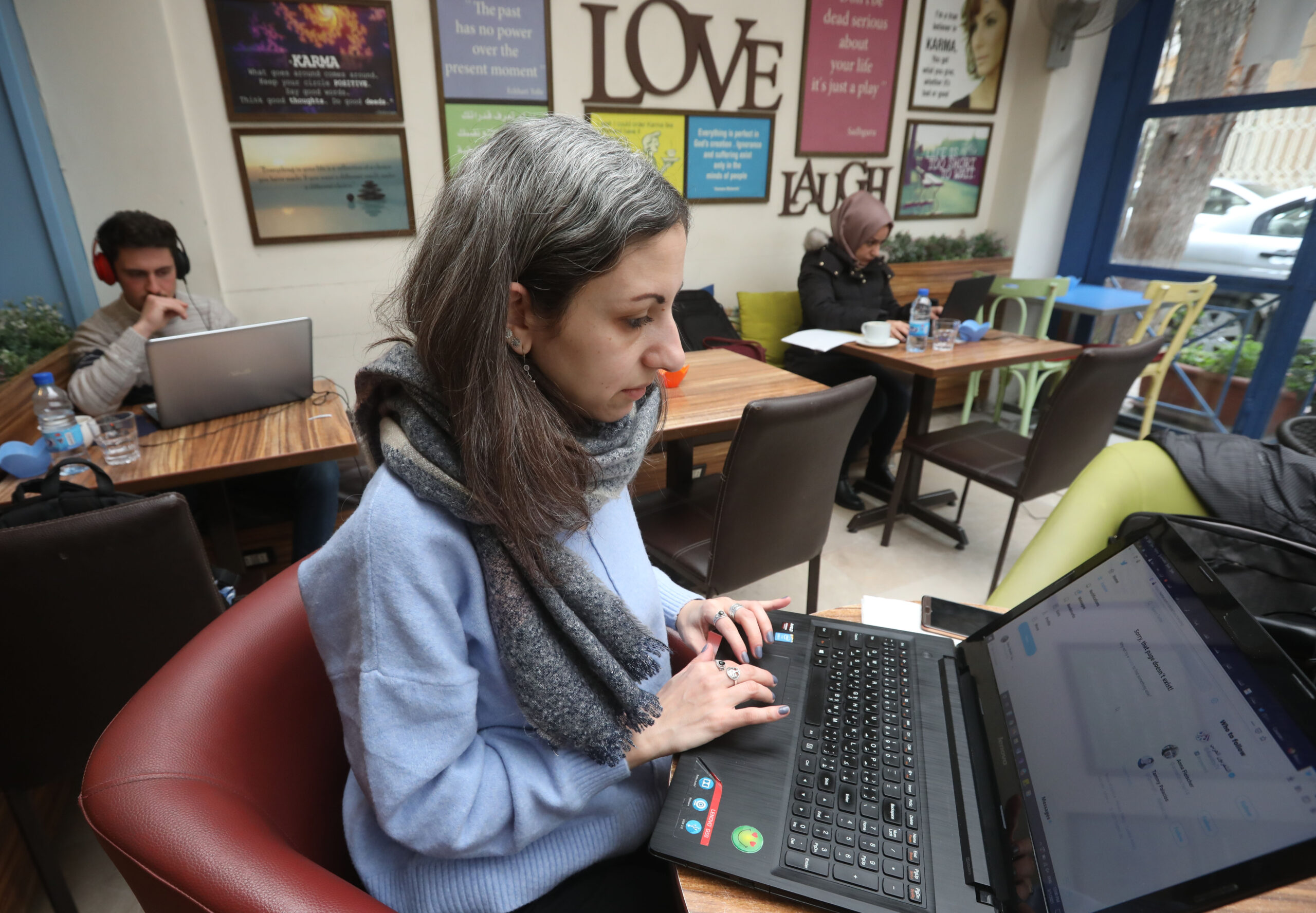Many people in Syria have turned to freelance work, especially with overseas employers, to earn salaries in foreign currencies. A sizable number of workers now offer their services for a small fee compared to employees in other countries. The decline in the currency’s value makes salaries in foreign notes a much better option for those residing within Syria.
Syrians are facing a severe economic crisis that has limited local job opportunities. The World Bank issued a report last March predicting a contraction of the country’s gross domestic product (GDP) by about 3.2% in 2023, after a decline of 3.5% last year. These plummeting numbers result from internal conflicts, high costs, and water scarcity that could reduce crop yield.
Underdeveloped Infrastructure
It was not so easy for Syrians to enter the world of freelancing. On the one hand, only a few are familiar with the option of remote work, according to a study conducted by the Local Development Organization (LDO). A good percentage of Syrians needed to be made aware that their skills could provide a good source of income through online work.
On the other hand, freelance work requires a robust infrastructure consisting of a stable internet connection, electricity, and costly digital devices such as mobile phones and computers. In an interview with SMEX, Samer Al Aswad, an expert and consultant at Afkar Plus, an incubator that supports entrepreneurial ideas, explains that “the situation in Syria is not limited to high prices of phones or laptops, but the fundamental problem of access to electricity and the internet.”
“Electricity has become very expensive; even when you buy a battery, you will need a charger and solar panels to ensure that the battery continues to be charged, and then you may want a lithium battery because a conventional battery is not enough, and you end up incurring large sums in the end,” says Al Aswad.
Freelance Skills
“Many companies prefer to deal with freelancers because they work remotely, which saves employers considerable costs such as travel expenses, visas, etc.,” Rami Issa, a Syrian Entrepreneur based in Qatar, told SMEX.
But it’s even more difficult in Syria, explains Issa, the founder of the “entaleek,” a platform that connects remote job seekers with employers. “Some areas need high-specification devices, such as iOS, which requires owning an Apple device. Other jobs like editing require a device with high specifications, an expensive investment for many Syrians,” Issa added. “Even if some people own these devices, their spare parts are not commonly available.”
Many freelancers are in dire need of training in skills in the areas of communication, correspondence, writing emails, and even contracts. “This is an essential part of remote work, which is based on building trust between the employer and the worker,” he explained.
Are Co-working Spaces the Solution?
These skills have become one of the primary services provided by business incubators, shared spaces, electricity, and the internet. “Some workspaces have even taken on the role of a guarantor between the two parties to work in terms of communication and contracts in exchange for a percentage of material allowance,” according to Al Aswad.
This is what Afkar Plus does, with which Al Aswad works after it was founded in 2013 in Hama and became more focused on the main work services, such as electricity and internet, for a small daily entrance fee.
In turn, the Financial and Administrative Director of the incubator, Leena Al-Khateeb, explains that “the shared space began about five years ago to host freelance workers before it evolved to provide other services such as contract management with companies and rights protection.”
Damascus-based Sanad Advanced did something similar by establishing two freelancing spaces in the capital and Aleppo.
Through one of the projects funded by the United Nations Development Fund (UNDP), named Freelancer Hub, Sanad provides “offices, power, and internet” that freelancers need, according to Yaman Al Sabek, Executive Director of the foundation. Freelancer Hub also provides “training in various skills such as photography, montage, programming, design, content creation, to launch trainees into the world of freelancing,” according to Al Sabek.
Blocked Websites, Sanctions, and Slow Internet
The idea of an incubator may be good for some, but it is not the right solution for everyone, especially since its still limited in Syria. Mobility itself is a burden for individuals, leading to the loss of many opportunities for freelancing or online studying.
In addition, many websites specialized in training courses, such as Coursera and Udemy since 2018, and even Zoom, are blocked in Syria due to sanctions and can only be accessed via a Virtual Private Network (VPN). As Al Aswad explains, these applications significantly slow down internet connection, making working remotely even more difficult.
In addition, some courses on these two popular skill-teaching sites are paid, making it difficult to purchase them due to electronic payment restrictions in Syria. Instead, many are forced to rely on friends and relatives abroad to pay online.
Yusuf, a communications graduate, told SMEX he could not participate in the course before paying the fee, so he turned to a friend in Dubai. After successfully registering, he could not use Zoom, circumventing the ban via the Psiphon application for VPN.
“Using a VPN in Syria is insufferable. The already slow internet loses a lot of its speed, and I often have to disconnect and then reconnect again to be able to attend. It becomes more difficult when I am asked to participate via camera—which is almost impossible,” he told SMEX.
Many Syrians feel they live in a lagging time. Until the crisis ends, they have no solution but to circumvent website blocking and sanctions, tolerate lousy internet, and remain exposed to the risks of using random applications.



